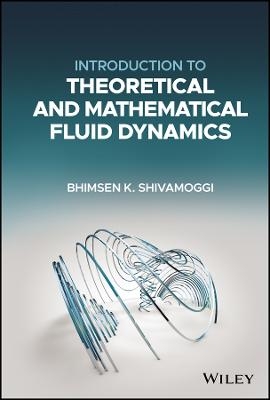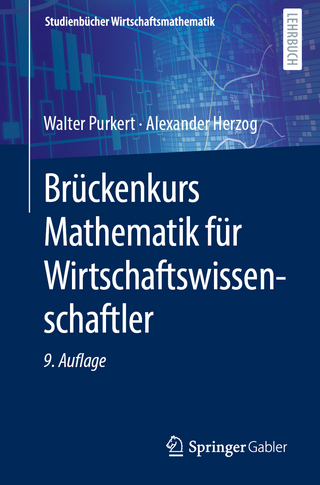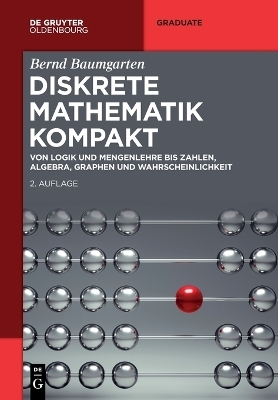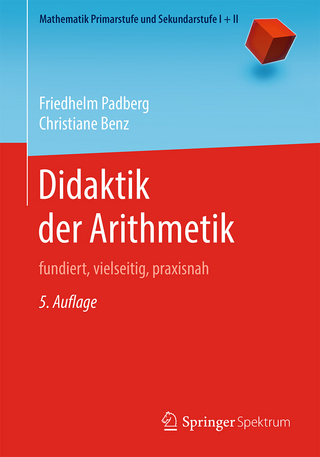
Introduction to Theoretical and Mathematical Fluid Dynamics
John Wiley & Sons Inc (Verlag)
978-1-119-10150-5 (ISBN)
In Introduction to Theoretical and Mathematical Fluid Dynamics, distinguished researcher Dr. Bhimsen K. Shivamoggi delivers a comprehensive and insightful exploration of fluid dynamics from a mathematical point of view. The book introduces readers to the mathematical study of fluid behavior and highlights areas of active research in fluid dynamics. With coverage of advances in the field over the last 15 years, this book provides in-depth examinations of theoretical and mathematical fluid dynamics with a particular focus on incompressible and compressible fluid flows.
Introduction to Theoretical and Mathematical Fluid Dynamics includes practical applications and exercises to illustrate the concepts discussed within, and real-world examples are explained throughout the text. Clear and explanatory material accompanies the rigorous mathematics, making the book perfect for students seeking to learn and retain this complex subject.
The book also offers:
A thorough introduction to the basic concepts and equations of fluid dynamics, including an introduction to the fluid model, the equations of fluid flows, and surface tension effects
Comprehensive explorations of the dynamics of incompressible fluid flows, fluid kinematics and dynamics, the complex-variable method, and three-dimensional irrotational flows
Detailed discussions of the dynamics of compressible fluid flows, including a review of thermodynamics, isentropic fluid flows, potential flows, and nonlinear theory of plane sound waves
Systematic discussions of the dynamics of viscous fluid flows, including shear-layer flow, jet flow and wake flow.
Ideal for graduate-level students taking courses on mathematical fluid dynamics as part of a program in mathematics, engineering, or physics, Introduction to Theoretical and Mathematical Fluid Dynamics is also an indispensable resource for practicing applied mathematicians, engineers, and physicists.
Bhimsen K. Shivamoggi, PhD, is Professor in the Departments of Mathematics and Physics at the University of Central Florida. He is a Senior Fellow of the Japan Society for the Promotion of Science. His research is focused on mathematical physics, fluid dynamics, stochastic processes, and nonlinear dynamics.
Contents
Preface to the Third Edition xv
Acknowledgments xvii
Part I Basic Concepts and Equations of Fluid Dynamics 1
1 Introduction to the Fluid Model 3
1.1 The Fluid State 4
1.2 Description of the Flow-Field 5
1.3 Volume Forces and Surface Forces 7
1.4 Relative Motion Near a Point 10
1.5 Stress–Strain Relations 13
2 Equations of Fluid Flows 15
2.1 The Transport Theorem 16
2.2 The Material Derivative 18
2.3 The Law of Conservation of Mass 18
2.4 Equation of Motion 19
2.5 The Energy Equation 19
2.6 The Equation of Vorticity 22
2.7 The Incompressible Fluid 23
2.8 Boundary Conditions 24
2.9 A Program for Analysis of the Governing Equations 25
3 Hamiltonian Formulation of Fluid-Flow Problems 27
3.1 Hamiltonian Dynamics of Continuous Systems 28
3.2 Three-Dimensional Incompressible Flows 32
3.3 Two-Dimensional Incompressible Flows 35
4 Surface Tension Effects 39
4.1 Shape of the Interface between Two Fluids 39
4.2 Capillary Rises in Liquids 41
Part II Dynamics of Incompressible Fluid Flows 45
5 Fluid Kinematics and Dynamics 47
5.1 Stream Function 47
5.2 Equations of Motion 50
5.3 Integrals of Motion 50
5.4 Capillary Waves on a Spherical Drop 51
5.5 Cavitation 54
5.6 Rates of Change of Material Integrals 55
5.7 The Kelvin Circulation Theorem 57
5.8 The Irrotational Flow 58
5.9 Simple-Flow Patterns 62
(i) The Source Flow 62
(ii) The Doublet Flow 63
(iii) The Vortex Flow 66
(iv) Doublet in a Uniform Stream 66
(v) Uniform Flow Past a Circular Cylinder with Circulation 67
6 The Complex-Variable Method 71
6.1 The Complex Potential 71
6.2 Conformal Mapping of Flows 74
6.3 Hydrodynamic Images 82
6.4 Principles of Free-Streamline Flow 84
(i) Schwarz-Christoffel Transformation 84
(ii) Hodograph Method 93
7 Three-Dimensional Irrotational Flows 99
7.1 Special Singular Solutions 99
(i) The Source Flow 99
(ii) The Doublet Flow 101
7.2 d’Alembert’s Paradox 104
7.3 Image of a Source in a Sphere 105
7.4 Flow Past an Arbitrary Body 107
7.5 Unsteady Flows 109
7.6 Renormalized (or Added) Mass of Bodies Moving through a Fluid 111
8 Vortex Flows 115
8.1 Vortex Tubes 115
8.2 Induced Velocity Field 117
8.3 Biot-Savart’s Law 117
8.4 von Kármán Vortex Street 121
8.5 Vortex Ring 124
8.6 Hill’s Spherical Vortex 129
8.7 Vortex Sheet 131
8.8 Vortex Breakdown: Brooke Benjamin’s Theory 135
9 Rotating Flows 143
9.1 Governing Equations and Elementary Results 143
9.2 Taylor-Proudman Theorem 144
9.3 Propagation of Inertial Waves in a Rotating Fluid 146
9.4 Plane Inertial Waves 147
9.5 Forced Wavemotion in a Rotating Fluid 150
(i) The Elliptic Case 153
(ii) The Hyperbolic Case 154
9.6 Slow Motion along the Axis of Rotation 155
9.7 Rossby Waves 160
10 Water Waves 167
10.1 Governing Equations 168
10.2 A Variational Principle for Surface Waves 169
10.3 Water Waves in a Semi-Infinite Fluid 171
10.4 Water Waves in a Fluid Layer of Finite Depth 172
10.5 Shallow-Water Waves 174
(i) Analogy with Gas Dynamics 175
(ii) Breaking of Waves 176
10.6 Water Waves Generated by an Initial Displacement over a Localized Region 176
10.7 Waves on a Steady Stream 182
(i) One-Dimensional Gravity Waves 183
(ii) One-Dimensional Capillary-Gravity Waves 184
(iii) Ship Waves 185
10.8 Gravity Waves in a Rotating Fluid 188
10.9 Theory of Tides 193
10.10 Hydraulic Jump 195
(i) Tidal Bores 195
(ii) The Dam-Break Problem 199
10.11 Nonlinear Shallow-Water Waves 202
(i) Solitary Waves 206
(ii) Periodic Cnoidal Waves 208
(iii) Interacting Solitary Waves 214
(iv) Stokes Waves 219
(v) Modulational Instability and Envelope Solutions 220
10.12 Nonlinear Capillary-Gravity Waves 230
(i) Resonant Three-Wave Interactions 230
(ii) Second-Harmonic Resonance 235
11 Applications to Aerodynamics 241
11.1 Airfoil Theory: Method of Complex Variables 242
(i) Force and Moments on an Arbitrary Body 242
(ii) Flow Past an Arbitrary Cylinder 245
(iii) Flow Around a Flat Plate 248
(iv) Flow Past an Airfoil 250
(v) The Joukowski Transformation 253
11.2 Thin Airfoil Theory 259
(i) Thickness Problem 262
(ii) Camber Problem 264
(iii) Flat Plate at an Angle of Attack 269
(iv) Combined Aerodynamic Characteristics 271
(v) The Leading-Edge Problem of a Thin Airfoil 271
11.3 Slender-Body Theory 275
11.4 Prandtl’s Lifting-Line Theory for Wings 277
11.5 Oscillating Thin-Airfoil Problem: Theodorsen’s Theory 282
Part III Dynamics of Compressible Fluid Flows 297
12 Review of Thermodynamics 299
12.1 Thermodynamic System and Variables of State 299
12.2 The First Law of Thermodynamics and Reversible and Irreversible Processes 300
12.3 The Second Law of Thermodynamics 303
12.4 Entropy 304
12.5 Liquid and Gaseous Phases 307
13 Isentropic Fluid Flows 309
13.1 Applications of Thermodynamics to Fluid Flows 309
13.2 Linear Sound Wave Propagation 310
13.3 The Energy Equation 310
13.4 Stream-Tube Area and Flow Velocity Relations 312
14 Potential Flows 317
14.1 Governing Equations 317
14.2 Streamline Coordinates 319
14.3 Conical Flows: Prandtl-Meyer Flow 320
14.4 Small Perturbation Theory 324
14.5 Characteristics 326
(i) Compatibility Conditions in Streamline Coordinates 328
(ii) A Singular-Perturbation Problem for Hyperbolic Systems 331
15 Nonlinear Theory of Plane Sound Waves 343
15.1 Riemann Invariants 343
15.2 Simple Wave Solutions 344
15.3 Nonlinear Propagation of a Sound Wave 352
15.4 Nonlinear Resonant Three-Wave Interactions of Sound Waves 355
15.5 Burgers Equation 361
16 Shock Waves 371
16.1 The Normal Shock Wave 371
16.2 The Oblique Shock Wave 384
16.3 Blast Waves: Taylor’s Self-similarity and Sedov’s Exact Solution 387
17 The Hodograph Method 393
17.1 The Hodograph Transformation of Potential Flow Equations 393
17.2 The Chaplygin Equation 394
17.3 The Tangent-Gas Approximation 396
17.4 The Lost Solution 401
17.5 The Limit Line 402
18 Applications to Aerodynamics 411
18.1 Thin Airfoil Theory 411
(i) Thin Airfoil in Linearized Supersonic Flows 411
(ii) Far-Field Behavior of Supersonic Flow Past a Thin Airfoil 414
(iii) Thin Airfoil in Transonic Flows 417
18.2 Slender Bodies of Revolution 420
18.3 Oscillating Thin Airfoil in Subsonic Flows: Possio’s Theory 427
18.4 Oscillating Thin Airfoils in Supersonic Flows: Stewartson’s Theory 435
Part IV Dynamics of Viscous Fluid Flows 439
19 Exact Solutions to Equations of Viscous Fluid Flows 441
19.1 Channel Flows 442
19.2 Decay of a Line Vortex: The Lamb-Oseen Vortex 443
19.3 Line Vortex in a Uniform Stream 446
19.4 Diffusion of a Localized Vorticity Distribution 446
19.5 Burgers Vortex 451
19.6 Flow Due to a Suddenly Accelerated Plane 453
19.7 The Round Laminar Jet: Landau-Squire Solution 456
19.8 Ekman Layer at a Free Surface in a Rotating Fluid 459
19.9 Centrifugal Flow Due to a Rotating Disk: von Kármán Solution 462
19.10 Shock Structure: Becker’s Solution 464
19.11 Couette Flow of a Gas 467
20 Flows at Low Reynolds Numbers 469
20.1 Dimensional Analysis 469
20.2 Stokes’ Flow Past a Rigid Sphere: Stokes’ Formula 470
20.3 Stokes’ Flow Past a Spherical Drop 474
20.4 Stokes’ Flow Past a Rigid Circular Cylinder: Stokes’ Paradox 478
20.5 Oseen’s Flow Past a Rigid Sphere 479
20.6 Oseen’s Approximation for Periodically Oscillating Wakes 483
21 Flows at High Reynolds Numbers 489
21.1 Prandtl’s Boundary-Layer Concept 489
21.2 The Method of Matched Asymptotic Expansions 490
21.3 Location and Nature of the Boundary Layers 497
21.4 Incompressible Flow Past a Flat Plate 500
(i) The Outer Expansion 501
(ii) The Inner Expansion 502
(iii) Flow Due to Displacement Thickness 507
21.5 Separation of Flow in a Boundary Layer: Landau’s Theory 509
21.6 Boundary Layers in Compressible Flows 512
(i) Crocco’s Integral 514
(ii) Flow Past a Flat Plate: Howarth-Dorodnitsyn Transformation 516
21.7 Flow in a Mixing Layer between Two Parallel Streams 517
(i) Geometrical Characteristics of the Mixing Flow 520
21.8 Narrow Jet: Bickley’s Solution 521
21.9 Wakes 524
21.10 Periodic Boundary Layer Flows 524
22 Jeffrey-Hamel Flow 529
22.1 The Exact Solution 529
(i) Only 𝑒1 Is Real and Positive 531
(ii) 𝑒1, 𝑒2, and 𝑒3 Are Real and Distinct 532
22.2 Flows at Low Reynolds Numbers 535
22.3 Flows at High Reynolds Numbers 541
References 545
Bibliography 549
Index 551
| Erscheinungsdatum | 28.11.2019 |
|---|---|
| Verlagsort | New York |
| Sprache | englisch |
| Maße | 152 x 231 mm |
| Gewicht | 794 g |
| Themenwelt | Mathematik / Informatik ► Mathematik |
| Naturwissenschaften ► Physik / Astronomie | |
| Technik ► Maschinenbau | |
| ISBN-10 | 1-119-10150-6 / 1119101506 |
| ISBN-13 | 978-1-119-10150-5 / 9781119101505 |
| Zustand | Neuware |
| Haben Sie eine Frage zum Produkt? |
aus dem Bereich


